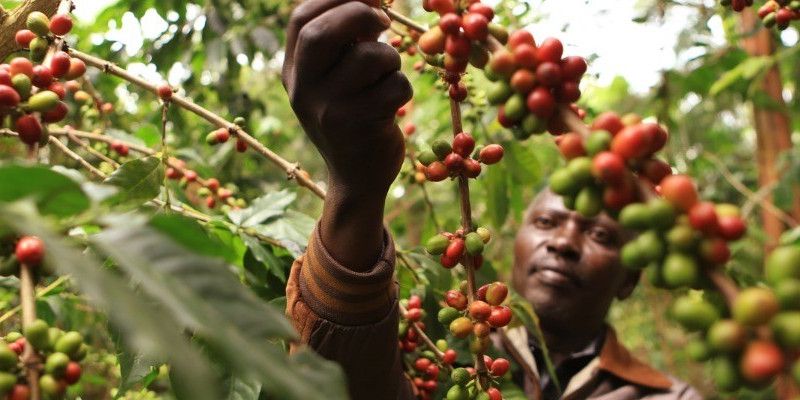
MARKUP Changes the Fortunes of Women Coffee Farmers
Q & A with Agnes Mukamushinja
Agnes Mukamushinja is a trained nurse and a motivated and inspiring entrepreneur, founder and owner of Nova Coffee Washing Station based in Rwanda. She had been running a pharmacy called ‘Pharmacie Nova’ in Kigali together with her husband Felix, and the couple only recently decided to invest into a coffee business, which they aptly named ‘Nova Coffee’.
What began as a mere family business a few years ago, has quickly transformed into one of the largest Rwandan coffee enterprises. Nova Coffee not only employs hundreds of farmers but enables Rwandan women to earn a living from the project's 155-hectare coffee plantation. Nova Coffee is today a coffee processor and exporter run by Rwandan women. MARKUP interviewed Agnes Mukamushinja about their success story.
Q1. Tell us all about NOVA Coffee Limited and how it began
Agnes: During the genocide, I saw most of the coffee trees in my village getting destroyed, trees that my father had spent his entire 50-year career supporting, as a coffee agronomist and mobiliser. The remaining trees were of low quality and all coffee was being processed as semi-washed. When we got the opportunity to buy and restore a decrepit old washing station, we saw this as a chance to revitalise a community. We purchased the site where NOVA coffee is currently situated in 2013 with plans to expand operations.
I began with 25 women but today we are more than 382 women, and we have an additional number of youths we are working with. The majority of workers are women, most of them very poor. Nova Coffee serves 2,800 small scale coffee farmers.
Q2. How did you learn about MARKUP?
Agnes: I had my first encounter with MARKUP in Nairobi four years ago. I attended a training on how to get a market for my products and how to address clients properly. Through the booklets provided at the training, I got a lot of information on how the programme has uplifted the lives of many smallholder farmers.
Q3. What are some of the challenges you faced and how has MARKUP helped you overcome them?
Agnes: Since we were very new in the sector, we were really challenged by getting the right seedlings, tending to the coffee trees, harvesting and marketing. MARKUP enabled us to distribute about 200,000 coffee trees plus shade and tropical fruit trees to all coffee farming communities every year through our NOVA SAWA project.
Thanks to MARKUP, we have been organic IMSC certified since 2021. This helps us to expand our organic farming approaches.
We also had challenges with funding and subsidising the infrastructure of the washing stations, and it helped a lot that MARKUP provided us with two moisture meters.
Also, without MARKUP training and financial support, we could never have participated in international trade fairs, which provided us with valuable contacts and business connections.
We are also part of a MARKUP pilot study using block chain technology for traceability and transparency that will help to increase the visibility of women-owned small holder farmers to international buyers, thus bringing women’s products to a global audience and helping them build a stronger business.
Q4. What is the impact of the MARKUP project on NOVA Coffee Ltd?
Agnes: MARKUP has provided training and financial assistance to the project, which has enabled us to participate in international trade fairs. As a result, one of our coffee washing stations in the north, which initially only supplied to local intermediary buyers who would then export, is now directly exporting to their customers.
Our staff get security, knowledge and skills training which has enabled us to fulfil the requirements of international markets such as the USA. In fact, we gained new buyers, such as a buyer from Germany, who signed a contract in 2022 for 320 bags of green fully washed coffee.
Nova Coffee has been UTZ certified since September 2020 and is in the process of gaining organic, Café Practice and Rainforest Alliance accreditations.
To help small businesses in addressing traceability and enhance marketing, we digitised the traceability records of close to 1,000 women coffee growers in Rwanda. This has helped them improve their visibility to buyers as well as to improve the sales value of their coffee.
Due to MARKUP, our exports have increased from 100 bags in 2017 to 5.5 containers in 2021. We are hoping to increase our production from 8 to 12 containers of coffee a year by the end of 2024.
Through the provision of training, we have since participated in the World of Coffee Forum, thereby increasing our visibility in order to enhance marketing.
We participated in an online auction organised by CEPAR and emerged as winners.